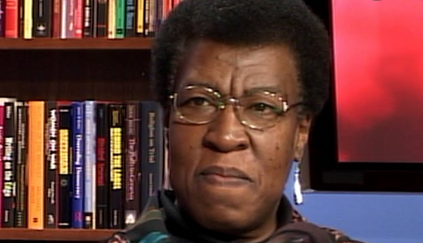Photos: YouTube
Science fiction has gone mainstream. Its impact is starkly evident in almost every category of cultural product, from movies to music videos to clothing. Once considered a niche fascination restricted to pulp devoured only by “nerds”, the dreams of SciFi are now an influential driver of technological development.
Besides advancements in CGI and visual effects, the science fiction of today looks different from its predecessors in another significant manner – diversity. Human characters that are not white and those with nuanced gender and sexual identities are finally more visible on screens big and small, and in the pages of books. And the importance of this representation is demonstrated by the scale of the public response to Black Panther. While it can be argued that the movie is just one in a long series of superhero movies, the manner in which it, a blockbuster, presented Black identity, and its treatment of African culture was unprecedented.
In literature, on the other hand, it may be a little less unusual. Black science fiction is today a distinct category unto itself, populated by several talented and, by now, well-established writers like Nnedi Okorafor, Colson Whitehead, N.K. Jemisin and Tochi Onyebuchi. However, one name that came before all of theirs and has, in fact, been dubbed the ‘Grand Dame of Science Fiction’ is that of Octavia Butler.

The Black SciFi Heroine
At a time and in a genre where nuanced female characters were rare, and Black characters close to non-existent, Octavia Butler created the Black heroine.
In Parable of the Sower, a Black teenager, Lauren Olamina journeys across a post-apocalyptic California ravaged by poverty, addiction and climate change to found a hopeful new religion called Earthseed. It called for acceptance of change and racial unity, and aimed to take the human race beyond Earth.
Kindred, her most well-known book, traces the time travels of a Black woman between 1970s L.A. and the pre-Civil War plantation home of her ancestors the slave-owning Rufus and his slave Alice. Meanwhile, in Dawn, another Black woman, Lilith Iyapo, becomes the sole hope for the continuation of humankind, having to bond with the alien Oankali race in order to do so.
The space of science fiction was dominated by white men who wrote for white male readers. Being on top, the fantastical worlds these authors created could be rid of the power dynamics rooted in race and gender, as its consequences rarely crossed their perspectives. Even as the genre fascinated and thrilled her, Butler, however, could not dismiss them as easily. Instead, she went in the opposite direction and wrote about Black women who had to navigate the hindrances that society set up for them, while trying to establish their autonomy and upending the traditional power hierarchy.
Butler’s Afrofuturism
Post-Black Panther, the term Afrofuturism is being recognized and understood by more and more people. Critic Mark Dery first coined and defined it in the early 1990s whilst discussing the then newly burgeoning area of Black science fiction. It was then a sub-genre that put African characters and those of the African diaspora, and their concerns and struggles front and center. Now, the word refers to a cultural movement. A movement that owes much to one its earliest practitioners, Octavia Butler.
The white-centric perspective is not relevant in her books. Instead, the future is imagined through Black eyes. For instance, both Dawn and Parable of the Sower painted a future where Black women were leaders.
Butler’s work also mines the wealth of African history, myth and tradition to contextualize its characters. It reaches out not only to the present moment but also far into the future and shapes the imagined science and technology of that time.
The Patternist series is an excellent example of this. Wild Seed situates the roots of an alternate reality in 17th century Africa, using real religion and mythology from Igbo tradition. Over the course of the rest of the books, this is sketched out years into the future, far beyond our present.
The Continued Relevance of Octavia Butler
The majority of the science fiction of the last century can be regarded as having aged out. Butler’s works stand among the exceptions. They continue to influence Black writers and artists (the most obvious manifestation being several TV series based on her books going into production). They are clearly among the seminal texts of the modern Afrofuturist movement. Besides inspiring contemporary cultural icons, the stories Butler wrote are particularly relevant to the current moment of heightened intolerance and deeper divisions along every line of difference, be it race, gender, religion or sexuality. The Parable series, which she described as “cautionary tales”, is almost frighteningly prescient now that we are catching up to the time period she set it in. Her nonfiction essays calling out the issues of her time ring resoundingly true even today.
Other books explore concepts such as fluidity, hybridity and multiethnicity which might serve as means to counter ideas revolving around supremacy and separateness. Kindred paints an emotionally graphic picture of a history that the world is better off remembering rather than forgetting, which it sometimes feels like it is trying to do.
This relevance ensures that the first and only SciFi writer to be awarded the MacArthur Fellowship (or the Genius Grant) is a modern bestseller. She is an essential read for all interested in issues of race and gender, or even those beginning to explore the potent ground of science fiction as an area for social comment.








